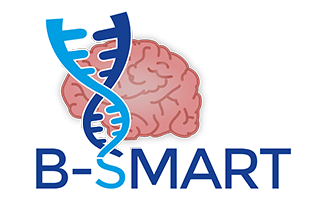B-SMART Workshop "Alzheimer's Disease: From RNA Research to Active Therapeutics"
Joint dissemination initiative in cooperation with H2020 project Starbios2
The workshop "Alzheimer's disease: from RNA research to active therapeutics" is an initiative co-organised by the two European projects B-SMART and STARBIOS2. It will take place at the Aula Anfiteatro of the Policlinico Tor Vergata on Wednesday, June 20, 2018 from 11:00 - 14:00.
The Horizon 2020 project B-SMART, which is part of the Eurice project portfolio in the field of Life Sciences, will develop advanced therapies to treat neurodegenerative diseases based on RNA delivery systems. The scientists already succeeded in developing an effective nanoparticle with customisable characteristics which is now being tested in a preclinical trial. The nanoparticle development marks a crucial step towards the overall research objective. "We are very pleased to see that our frontrunner nanoparticle behaves as expected," said Prof. Raymond Schiffelers from the University Medical Center Utrecht who coordinates the project. "With a slight advance in time, we are confident to move on to our next big challenge, which will be to demonstrate therapeutic activity in mouse models of Alzheimer’s disease."
As management and dissemination partner, Eurice contributes to the successful implementation of the B-SMART project goals by supporting the consortium in all aspects of project management and dissemination activities.
The STARBIOS2 project coordinated by Prof. Vittorio Colizzi of the Biology department of Tor Vergata University has the aim to promote The RRI -Research and Responsible Innovation- between different bioscience research institutions. Based on the experience of the STARBIOS2 project, ideal models and corresponding guidelines to promote the RRI are defined to support the structural changes necessary in the bioscience research organisations. The first scientific result of this structural change in the biology department has been the identification of small RNA molecules (named smallRNA, microRNA, etc.) that can be found in edible plants. If well exploited in diet, this principle can help to prevent chronic and degenerative diseases.
Neurodegenerative diseases such as Alzheimer's affect over 7 million people in Europe posing a significant healthcare burden to European societies and a major challenge to the healthcare systems. Although a treatment for this disease is badly needed, the resources in play, especially by the multinational pharmaceutical research, have been decreasing in the last period. It seems that degenerative diseases, including tumours, autoimmune diseases, etc., are the result of a long-term exposure to external (environmental and nutritional) factors ("exposome") and internal factors (genetic, immunological, biochemical).
The interest of STARBIOS2 for the research activities of B-SMART derives from the high social impact of this research field and the belief that biosciences must face the growing challenge of degenerative diseases determined by external factors. This is why the European Community is going to launch the big "Human Exposome Project" involving a hundred European research centres.
More information on the workshop as well as a form to register for it can be found here.


